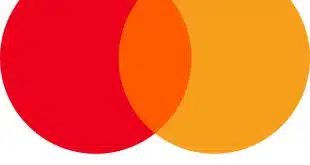The Western Union Co. has found out that worsening economic conditions in the United States can take a toll on seemingly sure-fire high-growth products like electronic bill payments. Western Union's third-quarter earnings report out on Tuesday shows that consumer-to-business, or bill-pay, revenues and operating income are down 2% and 10% respectively, from year-earlier levels while transaction volumes are up only 2%. In fact, operating income is down 15% when a stock-compensation charge is excluded. “Simply put, we are handling a lot fewer bill payments than we had originally anticipated at the beginning of 2008 as many American consumers who would use our service are having difficulty paying their bills and are unable to obtain credit in any form,” Scott Scheirman, executive vice president and chief financial officer, said at a morning analysts' conference call. Western Union handled 103.3 million c-to-b transactions in the quarter that generated $176 million in revenues and $47 million in operating income. Segment operating margins fell 420 basis points, or 4.2 percentage points, to 26.4% when the stock-compensation charge is excluded. Englewood, Colo.-based Western Union is the leader in consumer-to-consumer payments via wire transfers, but the c-to-b segment accounts for 13% of the company's business. Western Union is No. 1 in same-day, or expedited, payments, directly through billers, research firm Aite Group LLC estimates. The company plans to enhance that line with expedited and next-day posting through financial institutions' online-banking sites beginning next year (Digital Transactions News, Oct. 17). Western Union also may go shopping for more bill-pay providers and is planning further geographic diversification, according to Christina Gold, president and chief executive. The company bought Argentina's Servicio Electrónico de Pago S.A., or Pago Fácil, in late 2006 and took its services to Peru in the third quarter. Panama is up next in 2009. “Clearly we're working aggressively on Pago Fácil,” Gold said in response to an analyst's question about Western Union's c-to-b outlook. “The U.S. marketplace is an issue for us and we know that. We're aggressively pursuing expansion and also looking at acquisitions, so it's something that's really on our radar screen and we would anticipate improvements in that category as we go into 2009.” That Western Union?or any other vendor?would hit a pothole in today's economy isn't a surprise to James Van Dyke, the president of Pleasanton, Calif.-based Javelin Strategy and Research who has been studying the bill-pay market since even before his firm was founded six years ago. Banks tightening credit standards translates into fewer credit card and other loan bills being generated, he notes. Plus, Javelin research shows the bill-pay market passed one threshold of maturity last year, with 51% of U.S. households now paying at least one bill electronically at least once every month. That means bill-pay vendors must fight harder to attract billers and financial institutions with differentiated services rather than merely trying to get consumers to make the big leap from paper to electronics. “The electronic bill-payment market is getting more competitive,” Van Dyke tells Digital Transactions News. “Now we're seeing companies on the back end fighting for market share.” Vendors, banks, and researchers alike see expedited payments as the one bill-pay segment that can still generate profitable fee income. Banks generally offer most bill-pay services free on their online banking sites, but consumers often will pay a fee for last-minute posting as long as the fee is lower than the late fee they're trying to avoid.
Check Also
MoneyGram Adds Mastercard Move for Cross-Border Payments
MoneyGram International Inc. said it will adopt Mastercard Move, the card network’s cross-border money-transfer application. …





